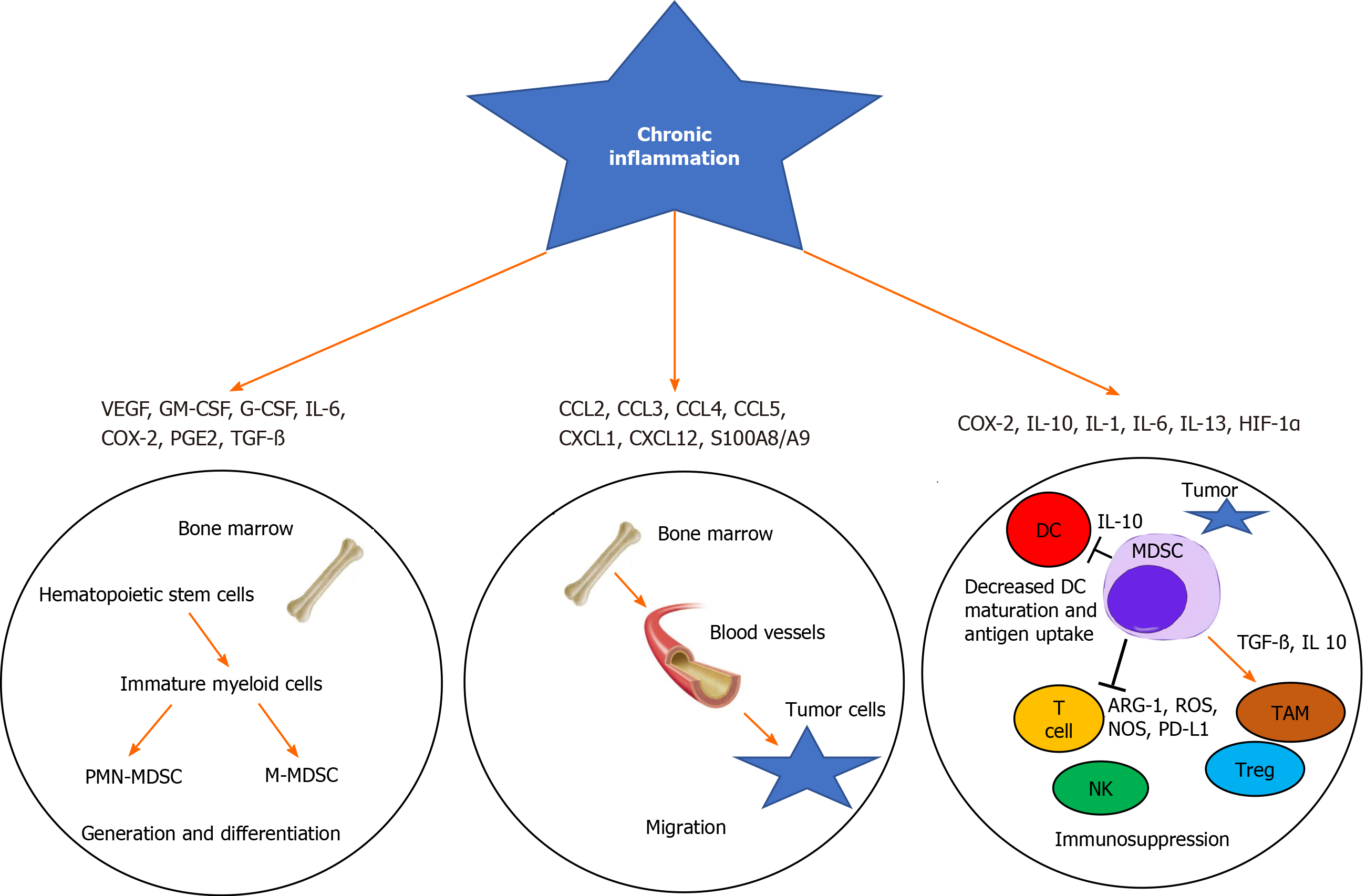Copyright
©The Author(s) 2021.
World J Gastrointest Oncol. Jan 15, 2021; 13(1): 1-11
Published online Jan 15, 2021. doi: 10.4251/wjgo.v13.i1.1
Published online Jan 15, 2021. doi: 10.4251/wjgo.v13.i1.1
Figure 1 Chronic inflammation activates myeloid-derived suppressor cell generation, migration, and immunosuppression in the tumor microenvironment.
Several cytokines and stimulator factors secreted by stroma and tumor cells (e.g., VEGF, granulocyte-macrophage colony-stimulating factor, IL-1, IL-6, HIF-1α, TGF-β, COX-2) trigger myeloid-derived suppressor cell (MDSC) generation and migration. Cytokines (e.g., CCL2, CCL3, CCL4, CCL5, CXCL1) stimulate the migration of MDSCs into the tumor microenvironment. At the tumor site, MDSCs undergo activation (via TNF, IL-10, IL-1, IL-6, IFN-γ, COX-2, HIF-1α, etc.) and suppress the anti-tumor reactivity of T and natural killer cells. Cross-talk between MDSCs and dendritic cells (DCs) impairs DC function and promotes tumor progression[81]. GM-CSF: Granulocyte-macrophage colony-stimulating factor; PMN-MDSC: Polymorphonuclear myeloid-derived suppressor cells; M-MDSC: Monocytic myeloid-derived suppressor cells; MDSC: Myeloid-derived suppressor cell; DC: Dendritic cell; ARG-1: Arginase 1; NOS: Nitric oxide; PD-L1: Programmed death-ligand 1; NK: Natural killer; ROS: Reactive oxygen species.
- Citation: Farshidpour M, Ahmed M, Junna S, Merchant JL. Myeloid-derived suppressor cells in gastrointestinal cancers: A systemic review. World J Gastrointest Oncol 2021; 13(1): 1-11
- URL: https://www.wjgnet.com/1948-5204/full/v13/i1/1.htm
- DOI: https://dx.doi.org/10.4251/wjgo.v13.i1.1









